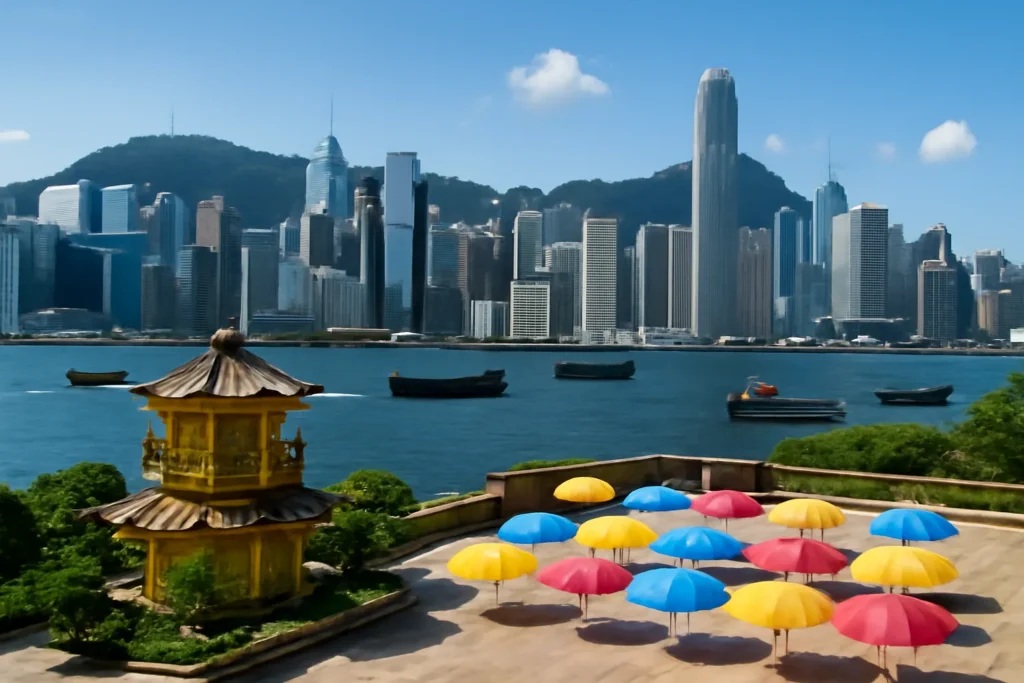A Prisoner, a President, and a Calculated Move
Few stories illuminate the tangled nexus between high-stakes global trade, human rights, and American political theater as starkly as Donald Trump’s vow to raise the plight of Hong Kong’s Jimmy Lai in negotiations with China. With trade talks scheduled in Switzerland, the former president’s decision to spotlight a prominent pro-democracy figure exposes the stark choices at the heart of modern diplomacy—is it possible to leverage America’s economic power for moral objectives, or does this entangle humanitarian ideals with cynical tit-for-tat?
The fate of Jimmy Lai embodies the risks facing activists speaking truth to power under authoritarian regimes. Lai, a British citizen since 1996 and founder of Hong Kong’s now-defunct Apple Daily, has languished in solitary confinement for much of his detention. Health concerns are mounting, as supporters warn that his treatment violates fundamental standards of justice. Yet for Beijing, the case is a matter of sovereignty. Chinese officials insist the trial is fair, even as Western observers and rights groups decry it as naked political persecution—a claim echoed by both the Biden and Trump State Departments, as well as parliamentarians in the UK.
The impending verdict, which could see Lai sentenced to life, is more than a local legal drama. It’s a test of whether Western democracies can—or will—exert any meaningful leverage over China’s crackdown on dissent. Trump’s rhetorical intervention stirs memories of Cold War-era diplomacy, when dissidents’ names were invoked in summits, but behind closed doors, autocrats rarely blinked under external pressure.
The Human Cost of Geopolitical Chess
Before almost any American official ever mentioned the phrase “national security law,” Jimmy Lai’s activism cost him. Persecuted for his role as a publisher, he stood as a symbol for Hong Kong’s flickering movement for democracy. His supporters argue it is no coincidence he’s been held largely in isolation. Armed only with his pen and a fierce desire for freedom, Lai now bears the physical and psychological costs of China’s intensifying authoritarianism.
What does it mean for Trump to fold Lai’s fate into the already incendiary trade talks? On one hand, it’s a belated acknowledgment that economics and human rights are inextricably linked—a principle many progressives view as nonnegotiable. On the other, it risks making an individual’s suffering a bargaining chip at the negotiating table, rather than an issue meriting intrinsic moral attention.
The Commerce Ministry in Beijing, aware of the optics, has reportedly left the door “open to negotiations” while evaluating U.S. overtures on tariffs. But the reality is more complex. A closer look reveals trade leverage seldom yields concessions on core regime imperatives like political repression. As Harvard political scientist Elizabeth Economy cautioned in a 2023 panel: “Authoritarian leaders are happy to pocket economic gains without offering meaningful political reforms.”
“If we only bring up human rights when they’re tactically convenient, we risk reinforcing the perception among autocrats that our concern begins and ends with the negotiator’s checklist.”
—Maya Wang, Human Rights Watch
Beyond that, linking trade and justice has a complicated legacy. Recall the Clinton-era debate over China’s Most Favored Nation (MFN) trade status. Despite early vows to tie human rights to trade, economic interests routinely trumped moral concerns. The result: rapid Chinese economic growth, but little freedom for dissidents or minorities under Beijing’s iron hand—a cautionary tale for those who think American business clout can shape another nation’s internal order.
Between Rhetoric and Results: Where Do We Go From Here?
Trump’s ostentatious declaration that it’s “a very good idea” to broach the Lai case with Xi Jinping’s negotiators has generated headlines, but will it move the needle for human rights? Cynics—and some principled critics—suspect it is less about advancing justice and more about political theater tailored for uneasy American voters who crave a tough-on-China posture.
“Mentioning Jimmy Lai in talks matters if and only if it marks the start of real, coordinated action—sanctions, diplomatic pressure, or unwavering public advocacy,” notes Suzanne Nossel, CEO of PEN America. Yet Trump’s record on prioritizing human rights in dealings with authoritarian leaders—from Vladimir Putin to Kim Jong-un—leaves many unconvinced. There’s also the risk of backfiring: Chinese propaganda could seize on the intervention as proof of foreign meddling, hardening its stance both against Lai and any future dialogue on political prisoners.
Global democracies have a moral and strategic stake in ensuring human rights don’t become a footnote to commerce. Some European leaders, often more consistent than Washington, have taken steps such as visa bans and asset freezes against Chinese officials implicated in human rights abuses in Xinjiang and Hong Kong. But until the U.S. and allies demonstrate a willingness to pay a real price—whether by sustaining tariffs, curbing investment, or expanding Magnitsky Act sanctions—authoritarians will continue to act with impunity.
What can you do? Pressure your elected representatives to make human rights central in all bilateral engagements, not just convenient moments. Support organizations that advocate for global press freedom and penalize those who attack it. Don’t let the fates of people like Jimmy Lai fade in the churn of 24-hour news cycles.
If Trump’s gambit brings Jimmy Lai’s ordeal to the negotiating table, let it be more than a sound bite. As this saga unfolds, the world will be watching—judging not just the outcomes for one prisoner, but whether the arc of U.S. foreign policy still bends toward justice rather than expediency.

